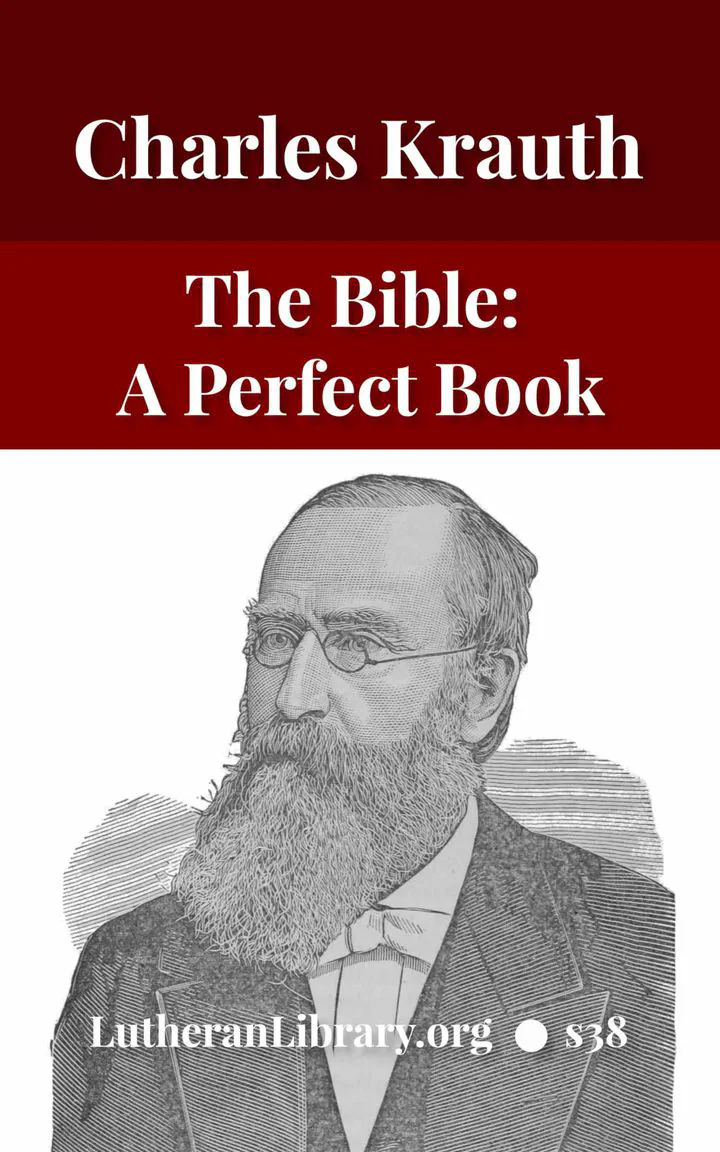The Bible a Perfect Book by Charles Krauth [Journal Article]

“The word of God is… inspired, for it comes from God; it is human, for it comes through man. But remember, we do not say that the human is without the divine. The Spirit, is incarnate in the Word, as the Son was incarnate in Christ. – Charles Krauth
Both Christ and the Bible are “The Word”
“There is a deep significance in the fact, that the title of “the Word” is given both to Christ, the Revealer, and to the Bible, the revelation of God, so that in some passages great critics differ as to which is meant. As Christ without confusion of natures is truly human as well as divine, so is this Word. As the human in Christ, though distinct from the divine, was never separate from it, and his human acts were never those of a merely human being, his toils, his merits and his blood, were those of God, so is the written Word, though most human of books, as Christ “the Son of Man” was most human of men, truly divine. Its humanities are no accidents; they are divinely planned. It is essential to God’s conception of his Book, that it shall be written by these men and in this way. He created, reared, made and chose these men, and inspired them to do this thing in their way, because their way was his way. – Charles Krauth
The Simplest Interpretation is The Best
“That interpretation will ever be best, which is simplest.
“When I was a young man,” says Luther, “I had a sight of learning, especially when I had just entered on Theology. Nothing but Allegories, Analogies, Tropology and pure Art, would do for me. Now I have given up the whole of them, and the best art I have, is to present the Scriptures in their simple meaning; for the literal sense — that does it, there lies doctrine, power and art.”
“He says elsewhere that spiritualizings and allegories ‘do very well for preachers, who have studied little,’ and who put on their fancy the proper work of their reason.
Publication Information
- Lutheran Library edition first published: 2019-09-09
- Updated: 2019-09-09
- Copyright: CC BY 4.0